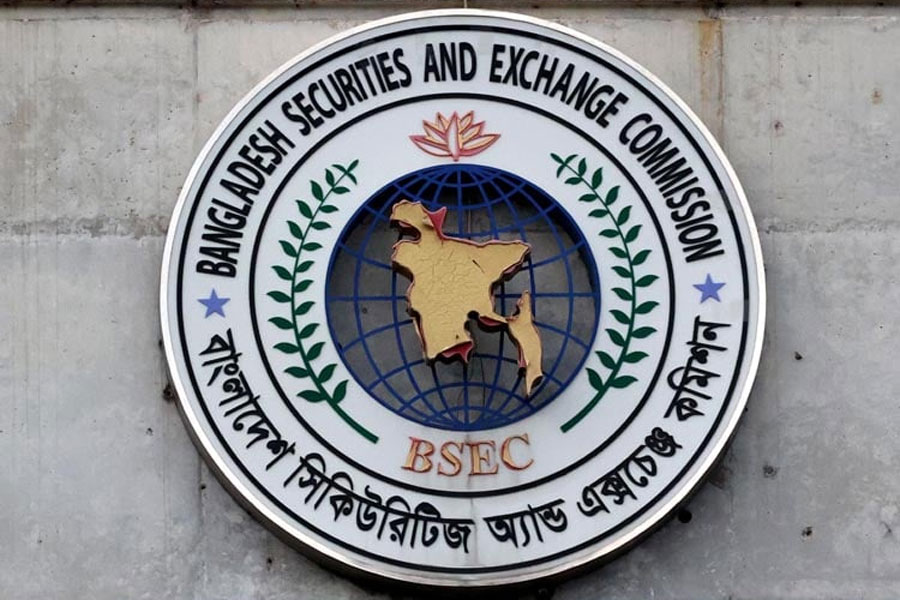
Published :
Updated :

The securities regulator has granted additional time to eight more market intermediaries to ensure compliance with provisioning requirements for unrealised losses and to adjust negative equity.
The extension will take effect after December 31 this year, when the current deadline expires.
"Some institutions have been given one more year, some two years, while others have received extensions up to 2030 or even 2032," said Abul Kalam, director and spokesperson of the Bangladesh Securities and Exchange Commission (BSEC).
The BSEC granted the extra time based on action plans submitted by the intermediaries - stockbrokers, dealers, and merchant banks - and endorsed by their respective boards.
The firms are City Brokerage, ONE Securities, Standard Bank Securities, Bangladesh Sunlife Securities, IFIC Securities, Apex Investments, Abaci Investments, and Sonali Investment PLC.
The regulatory approval was issued at a BSEC meeting on Tuesday, chaired by its Chairman Khondoker Rashed Maqsood.
Speaking to The FE, Mr Kalam explained that intermediaries with comparatively lower negative equity would get less time to regularise their positions, while those with greater levels of negative equity would receive longer extensions.
The regulator has so far granted 38 market intermediaries, as of Tuesday, additional time to meet provisioning requirements and adjust negative equity under board-approved roadmaps.
"Some other market intermediaries that have negative equity will have to submit their action plans within this year," said Mr Kalam.
In April this year, the BSEC instructed stockbrokers, dealers, and merchant banks to submit an implementable roadmap by September, outlining how they intended to achieve full provisioning.
In response, some firms submitted action plans to resolve the long-standing problem of negative equity that has been hindering market growth for more than a decade.
Outstanding negative equity against margin loans taken for equity investments stood at Tk 150 billion as of October this year.
Conditions to be met for time extension
Under the regulator's approval, the institutions must complete full provisioning and negative equity adjustment within the extended deadlines.
The BSEC said intermediaries receiving additional time must submit quarterly progress reports until the issue is fully resolved.
The firms are required to disclose their negative equity and unrealised losses in their financial statements based on IFRS accounting standards.
The regulatory order also imposed several restrictions, including a bar on share purchases in beneficiary owner (BO) accounts with negative equity. Only share sales will be allowed in margin accounts for adjustment during the extended period.
No interest will be charged on margin loans, nor will management fees be collected from BO accounts with negative equity. Intermediaries are also prohibited from declaring or distributing dividends during this period.
Moreover, no new negative equity may be created. If unavoidable circumstances lead to negative equity, full provisioning must be completed within the relevant financial year. Any information requested by the securities regulator must be provided within seven days.
The regulator, however, relaxed a provision relating to net-worth shortfalls arising from provisioning for unrealised losses or adjusting negative equity.
"The market intermediaries that fail to keep provisions for unrealised losses and adjust negative equity within the given timeframe will face regulatory action," said Mr Kalam.
Emergence of negative equity
Before the 2010-11 stock market crash, lenders disbursed margin loans aggressively, boosting liquidity in the market. Some lenders exceeded regulatory limits and provided margin loans to artificially push certain stocks.
Stockbrokers and merchant banks provided margin loans using funds received from parent companies, most of which are banks.
The market surged in 2010 driven largely by margin loans and then crashed, causing massive erosion of asset values.
The problem, persisting since the 2010 debacle, has intensified over the past 15 years, becoming a heavy burden on the equity market and restricting its growth.
Over time, negative equity ballooned as lenders refrained from selling securities in margin accounts to make adjustments, hoping for a market rebound that never came.
Market operators said margin loans deepened financial distress and weakened intermediaries and banks, ultimately straining the entire capital market - even those who did not take margin loans.
Previously, the securities regulator extended the deadline for negative equity adjustment at least six times, but most intermediaries failed to comply due to a prolonged bearish market.
babulfexpress@gmail.com


 For all latest news, follow The Financial Express Google News channel.
For all latest news, follow The Financial Express Google News channel.